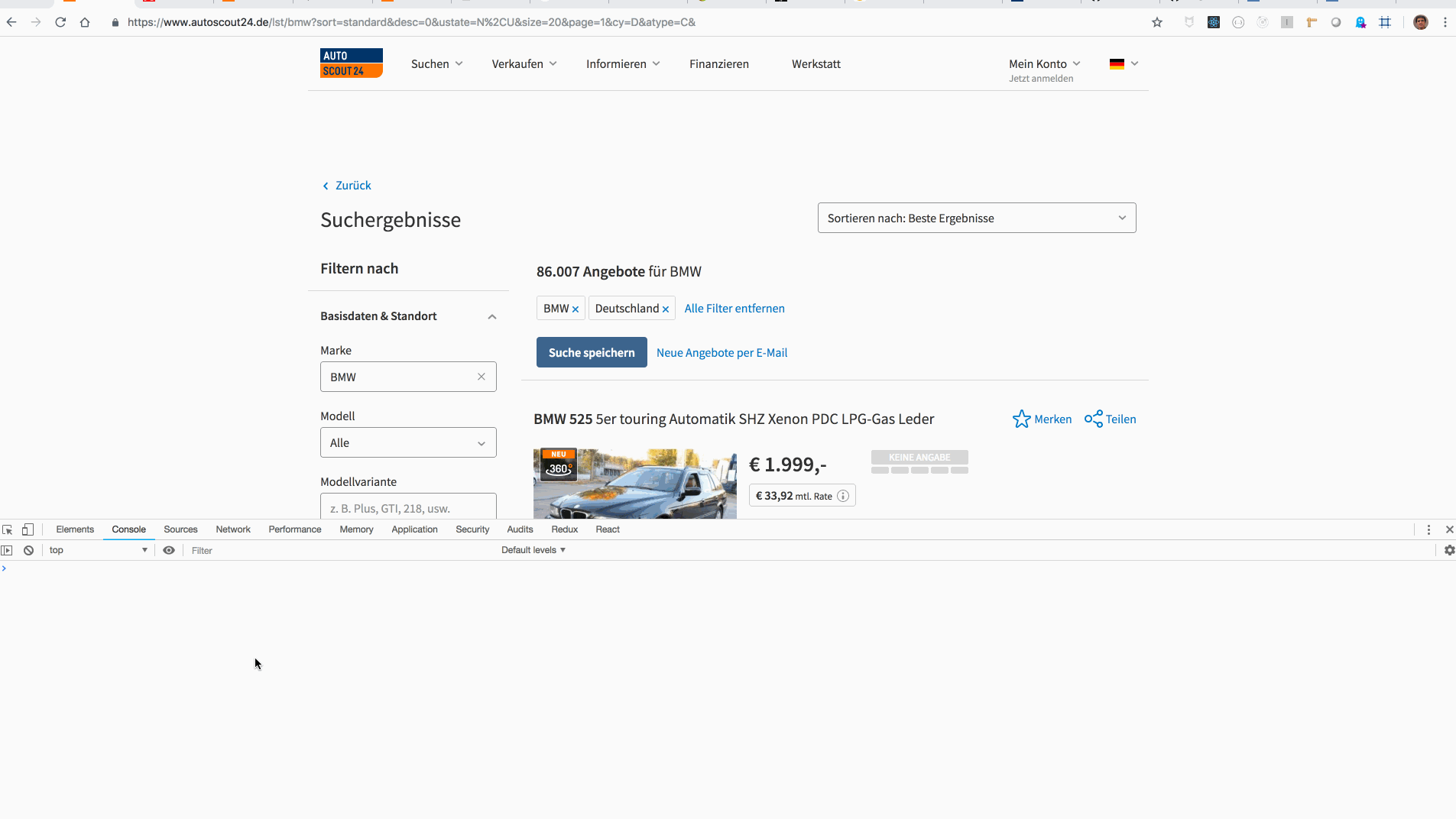@autoscout24/custom-events
v1.8.0
Published
Typings for custom events across as24 pages
Maintainers
Readme
AutoScout24 Custom Events
TypeScript definitions for all custom events available on as24 pages
This library provides a glue at compile-time between DOM CustomEvents produced in some component on a page and listeners from other components on that same page that depend on an agreed event interface (name & payload)
Installation
Install as a regular npm package
yarn add @autoscout24/custom-events@latest
or
npm install --save @autoscout24/custom-events@latestit's important to use the @latest tag so package is always up to date. It wouldn't help to pin to a particular version since at runtime the events will behave like @latest.
Usage
Listen to custom events
To add an event listener somewhere on your page, you do the usual event listener registration on Document root element
// somewhere in your app...
import { ListPage } from '@autoscout24/custom-events'
document.addEventListener(ListPage.ClassifiedListFilterUpdate, e => console.log(e.detail.searchUrls.standard))the compiler will know that the event is of type e: ListPage.ClassifiedListFilterUpdate since it can use indexed types.
Firing custom events
All custom events should be fired on the top Document root. To fire an event in a typesafe way, you can use the helper strictCustomEvent. It has the same signature as the usual CustomEvent constructor but it's typesafe (will check for consistency between name and payload)
import { ListPage, strictCustomEvent } from '@autoscout24/custom-events'
document.dispatchEvent(
strictCustomEvent(ListPage.ClassifiedListTotalCountUpdate, {
detail: {
totalCount: 42
}
})
)The compiler will make sure that the payload in detail matches the event definition associated to the key.
Debugging
You can log all custom event traffic easily on the browser by pasting the contents of logCustomEvents into the console. This will log all events

Polyfill
A custom polyfill for CustomEvent constructor syntax support on older browsers (IE11 and below) is provided in case you want to add it to your build
Contributing
Adding custom events
To add a new page event:
- Either go to the existing page where your event is present or create a new page (if it's a global event that ocurrs on all pages add it to "global page").
- Define both a
constantwith the event name andtype aliaswith the payload (we exploit Typescript duality to handle types and values under same name) - Register the event on the
DocumentEventMapso compiler knows about it everywhere. Note that this makes the events available only on theDocumentDOM element, which is good because that's where we should dispatch them.
Naming convention: To avoid collisions and ensure consistency, CustomEvent names should be of the form <SERVICE>:<NAME>, for example, CLASSIFIED_LIST:FILTER_UPDATE, etc.
Versioning via github labels
Since the global events are not really controlled by this library (they are fired by other applications), even if we tag a change as breaking it's not like the consumers will be safe by staying on older versions since at runtime the events will be upgraded. We still use versioning to keep the clients informed of potential breaking changes (ideally there should be none)
Use labels for bumping version:
- release:bugfix -> patch
- release:enhacement -> minor
- release:breaking -> breaking
Rollup config
Rollup is used to bundle the library. Bundle Statistics are available after build to inspect package size.
Releasing the updated version
To update the as24-custom-events npm package, we have to run the following command AFTER bumping the version in the package.json:
npm publish --access public --dry-run (remove dry-run when you're confident)

